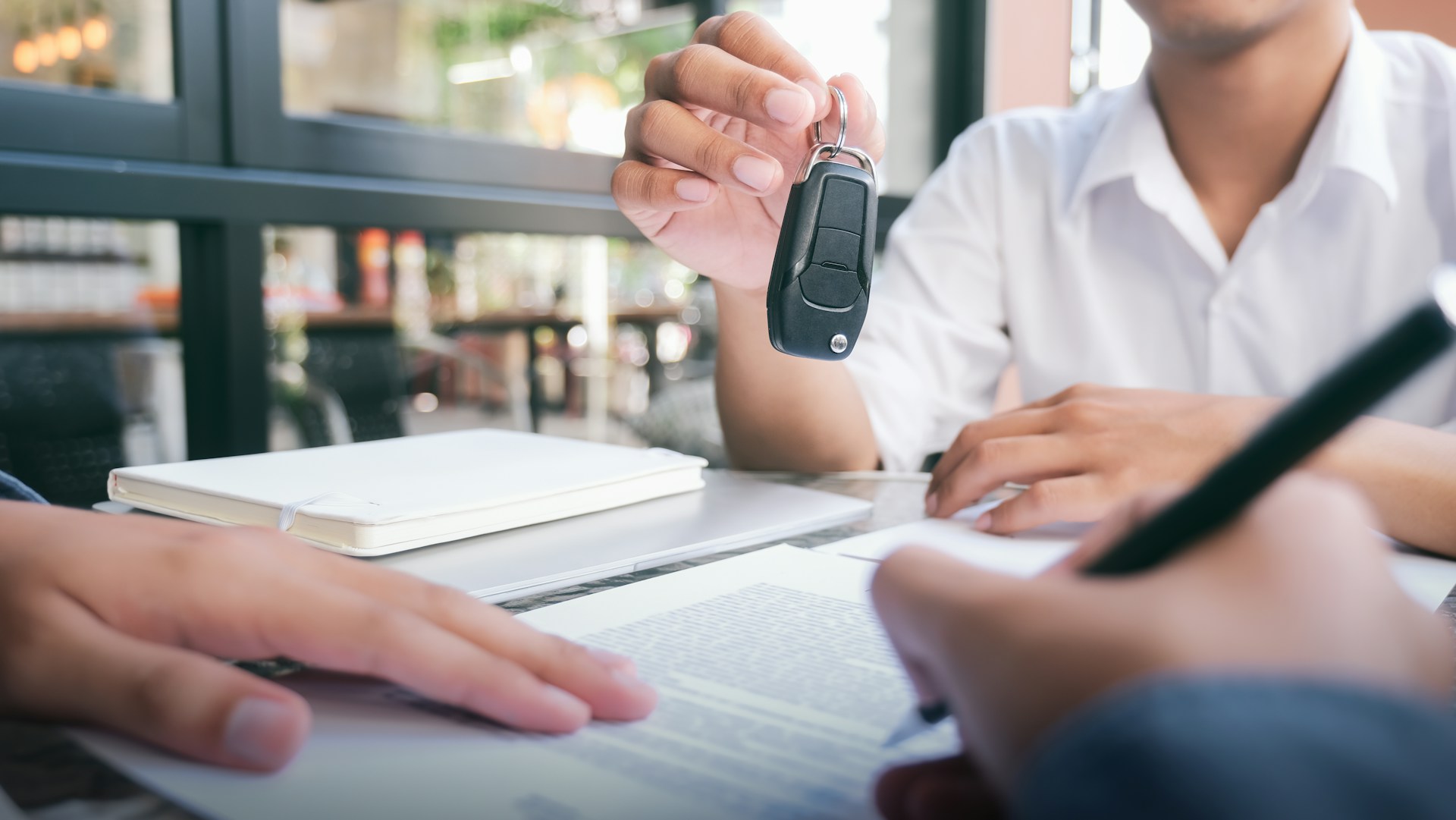
You’ve met with a prospective buyer, they’ve inspected your car, and they’re ready to buy. No matter how you want to get paid for your car, you’ll run into a trust problem that makes finalizing payment risky: Someone has to risk making the first move. Fortunately, there are tools and techniques for overcoming this hurdle.
Learn how to finalize payment in a private-party car sale. We’ll discuss different approaches to payment finalization and introduce you to a new tool that makes the process fast, safe, simple, and cheap.
At the grocery store, you know that when you pay, the cashier will give you the items you bought. In private-party sales with strangers, that might not always be the case. Once you and the buyer get to the cash register, nothing is stopping them from trying to grab the car and run.
While theft and payment fraud aren’t incredibly common, they are common enough to create a trust problem that private buyers and sellers need to overcome: The buyer wants to get the car before handing over the money, and you want to get paid before handing over the car. For a $2,000 car, both parties are often willing to throw caution to the wind and make the first move. But for a $50,000 sportscar, private-party sellers and buyers are rightfully apprehensive.
Escrow companies solve the trust problem They act as neutral third parties, holding the buyer’s funds until you both agree the transaction conditions have been met. After the title transfer, the escrow releases the funds to you.
Sounds like a good way to finalize payment, right? Not really. While escrow solves the trust problem, they do so at a steep price:
Escrow services work, but their configuration is increasingly outdated, slow, and expensive. You don’t need an escrow to sell your car.
A bill of sale is a legally binding document that records the car transaction details. It is required in 16 states and is a smart idea wherever you live. If either party tries to scam or defraud the other, a signed and countersigned bill of sale will hold up in court.
Most bills of sale include the following details:
With a signed bill of sale, the buyer can pay for the car and you can transfer the title without fear—if you use it right.
A paper bill of sale still includes some risks:
Safely use a paper bill of sale by following these best practices:
These steps should dissuade most scammers and protect you against losing or damaging your bill of sale. But it is a bit of a hoop jump. Instead of dealing with awkward requests, specific meeting locations, and extra steps, you can use a digital bill of sale instead of a paper one.
DealNow puts a state-specific digital bill of sale in the palm of your hand. Connect with a buyer and sign a bill of sale from your mobile device. With a signed bill of sale permanently saved to the cloud, you and the buyer can overcome the trust problem and get on with the sale. Besides streamlining payment finalization, enjoy these other high-tech features when transacting with DealNow:
DealNow is more than a digital payment platform—it’s a complete transactional workflow that helps you sell your car and finalize payment quickly, safely, and conveniently.
No. Proof of insurance concerns potential buyers and the state. Their insurance company can provide temporary coverage for the test drive. They might also be covered by your insurance policy.
You’ll need the vehicle title and vehicle registration. Some Department of Motor Vehicles offices require additional documents, like a bill of sale or maintenance records. Check with your local authority for more information.
f you have negative equity or a loan balance, coordinate with your financial institution to handle the loan payoff. The buyer’s payment needs to cover the full purchase price to clear the loan.
Research your vehicle’s fair market value through pricing sources such as Kelley Blue Book. Factor in regular maintenance, repair costs, and your local private market conditions as well. You can also use online marketplaces to gauge the current sale price for similar vehicles.
No. For private sales, always meet a prospective buyer in a safe, public location such as a police station. This protects you and your personal information from falling into the wrong hands. Some police stations have designated areas for vehicle purchases.
Wire transfers are secure, but you should insist on additional verification steps to protect your information. Take a photo of the buyer’s ID and complete the transaction at the buyer’s bank during business hours. This allows for immediate verification of funds transfer before signing over the vehicle title.
Use a secure payment method such as DealNow. ID verification and funds verification repel scammers, criminals, and time-wasters. Our guided dealflow with a digital bill of sale provides you with legal protection, and once you’re paid, the money is yours.
Yes. Loan payments are equivalent to cash car payments from a private seller’s perspective; while the buyer makes monthly payments to their lender, you receive the total amount upfront.
If your buyer wants to use a private-party auto loan from credit unions or other financial institutions, make sure they have loan approval and not a conditional loan offer. Wait for actual loan disbursement before transferring the title to avoid complications with loan commitments.
While not legally required, service records and regular maintenance documentation support your asking price and build trust with potential buyers. It shows you’ve been a responsible owner and are asking a fair price. If you didn’t keep maintenance records, work you’ve had done at auto shops will appear on a vehicle history report to prove maintenance.
Protect yourself by waiting to transfer the title until you’ve received a verified payment. Even with a signed bill of sale, maintain possession of the vehicle and all title documents until the purchase price is fully paid through verified funds.